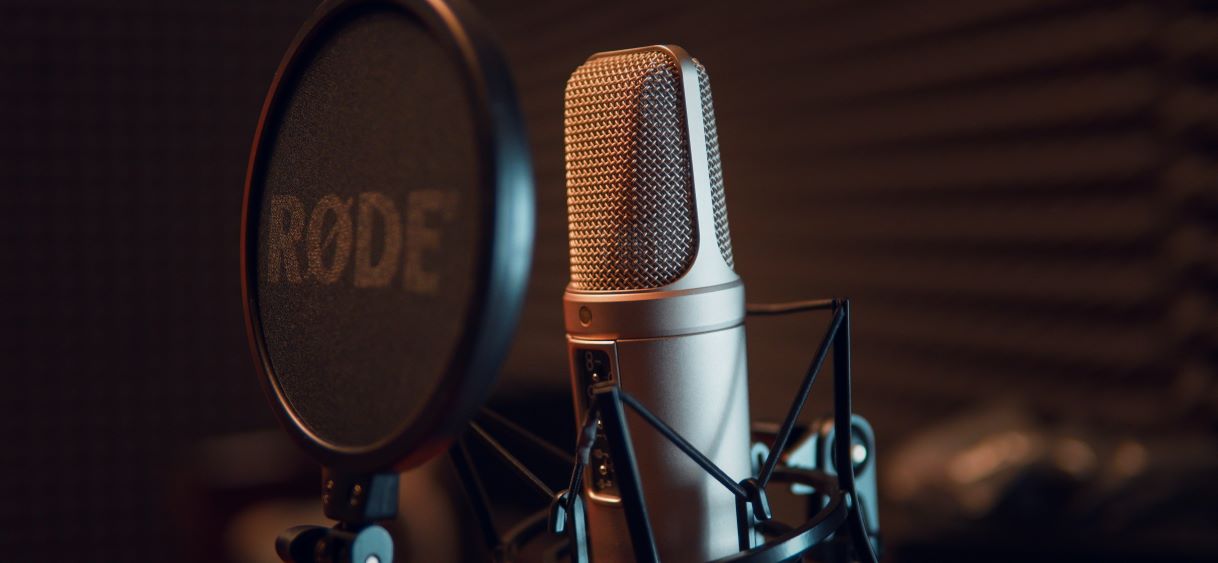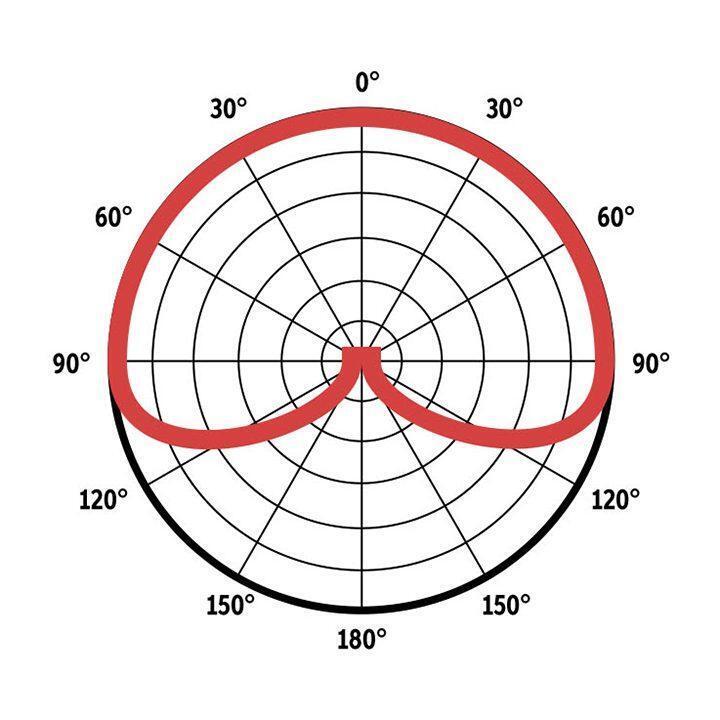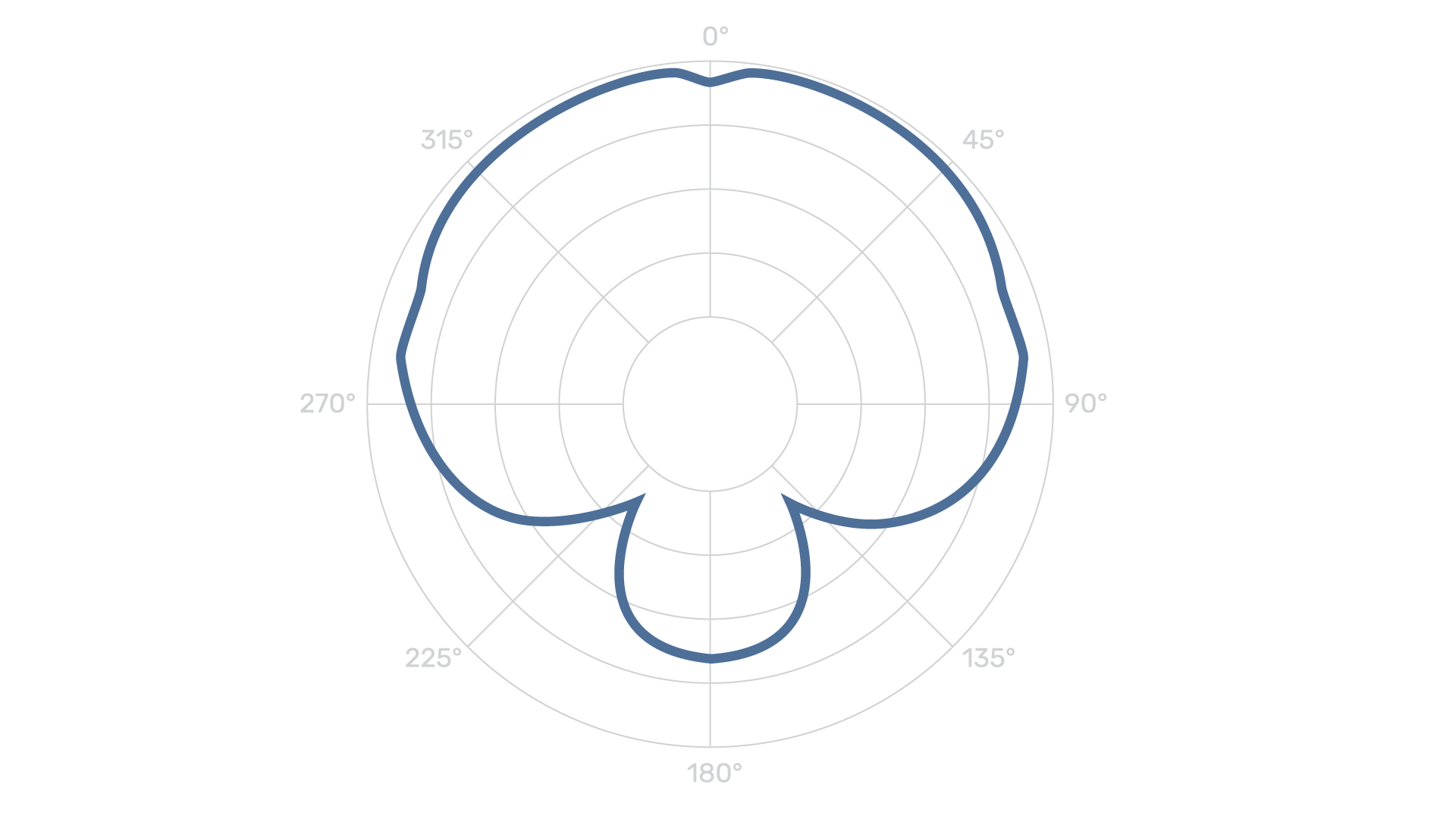
Best Microphone for Recording Vocals
by Voclio
Posted on July 22nd, 2021

Our Top Picks For Every Budget
In this article, we'll provide 8 mics that are great for recording vocals. All these mics are condenser microphones, and most are even specifically designed for vocals by their manufacturers.. If you are looking for a mic to record vocals, then you can't go wrong with any of these choices!
Full List:

Overview
This post may contain affiliate links. As an Amazon Associate we earn from qualifying purchases.
Best Cheap Microphone for Recording Vocals
The Audio-Technica AT2020 should be a go-to for anyone looking for a budget-friendly mic that works great on vocals. It sounds as clean and crisp as mics get for under $100.
We'd say it leans towards the airy and bright side. So some people complain that for instruments such as guitar it leaves out too much low end while making the high-end a bit harsh. But for vocals, it gives you the crisp sound that is very in right now.
It is available as both a USB mic and XLR connector for an audio interface connection.
Type: Condenser
Connection: USB or XLR Available
Frequency Response: 20-20,000 Hz
Pickup Pattern: 
Blue Mics make some great microphones in the budget category. And the Ember model is no exception.
We like this mic because it provides a very natural sound. Not too boxy and not too airy. For someone that wants an all-around solid mic that doesn't necessarily have a specific characteristic, this is a great choice.
Like many condenser mics, the Ember model requires 48v of power. Which means you'll need a semi-modern audio interface. Most audio interfaces, even starter interfaces, provide 48v of power. So it's not a deal-breaker at all but something to look out for!
Type: Condenser
Connection: XLR
Frequency Response: 38 Hz-20,000 Hz
Pickup Pattern: 
We feel that the MXL 770 is a serious diamond in the rough. At only $75, it may be the best budget microphone for vocals. I am a sucker for warm vocals. And this mic provides just that. I think it adds just a hint of sparkle and crisp that sounds great when recording vocals. It does accentuate the high-end frequencies, so it might not sound as good on something like an electric guitar which can have harsh high-end frequencies.
But for vocal recordings it helps your recording to sit nicely within a mix.
Type: Condenser
Connection: XLR
Frequency Response: 20 Hz-20,000 Hz
Pickup Pattern: 
The Lewitt LCT-240 Pro is our pick for Best Microphone Under $200. It's a great starter mic that will last well past your beginner stage. And it's the perfect microphone for recording vocals at home while also sounding great with guitar or other instruments.
Listen to the clean, crisp, sound it produces on vocals:
Type: Condenser
Connection: XLR
Frequency Response: 20 Hz-20,000 Hz
Pickup Pattern: 
Best Studio Microphone For Vocals
No matter what type of artist you are, you can't go wrong with the Lauten Audio LA-220. Even against mics 4-5x its price, the LA-220 mic stands its ground.
It's natural, well-balanced, and just an overall great mic for vocals. It features two independent filters located on the microphone that allow you to filter out under 120hz and over 12kHz - which makes it easy to adjust for different room types.
It also contains high-quality polypropylene capacitors and resistor components found in much more expensive microphones. Lastly, it comes with a shock mount to isolate the microphone from vibrations such as outside rumble from street noise.
There isn't much to not like about this mic!
Type: Condenser
Connection: XLR
Frequency Response: 20 Hz-20,000 Hz
Pickup Pattern: 
The NT1 is another mic that is great for vocals. At 4.5dB of self-noise, the NT1 is one of the quietest mic's on the market. Meaning that even during intimate moments of a vocal recording you will get a clear recording without any "buzz" or low-end hum.
For vocals, the NT1 is crisp with plenty of warm body in the mix. The frequency response is pretty flat with only a touch of help in the 5k-10k range.
Type: Condenser
Connection: XLR
Frequency Response: 20 Hz-20,000 Hz
Pickup Pattern: 
The SE Electronics sE2200 is a large-diaphragm condenser microphone that offers a smooth, polished sound for vocals. sE pays attention to the details only selecting the best components - and the quality shows. The sE2200’s custom transformer provides superb depth & weight to the overall sonic image.
For vocals, the sE2200 provides a simple clean sound that fits a broad spectrum of vocal styles. See for yourself the clean sound it provides:
Type: Condenser
Connection: XLR
Frequency Response: 20 Hz-20,000 Hz
Pickup Pattern: 
Overall Best Mic For Recording Vocals
If there is only one mic you can ever get, the ML-1 is a really solid choice. Slate Digital's ML-1 is unlike any other mic because it essentially is multiple high-quality mics in 1.
The mic uses an extremely transparent condenser microphone and a sonically neutral preamp to give you your base. It then combines the hardware with a state-of-the-art digital processing suite that recreates the tone of classic microphones and preamps. When you purchase the ML-1 you pair it with Slate Digitals Virtual Recording Studio. Which is essentially a plugin that allows you to model your recording after several different mic's.
Ultimately this allows you to have a top-of-the-line mic that will sound amazing in just about any environment.
It does require an iLok 2 or 3 which can be a bit annoying if you don't already have one.
Type: Condenser
Connection: XLR
Frequency Response: 20 Hz-20,000 Hz
Pickup Pattern: 
The Neumann TLM 102 is a classic sounding microphone that was specifically designed for vocals. Its finely tuned sound signature especially accents the area of 8 to 12 kilohertz which is crucial for human voices.
It features a built-in pop filter, and comes in both nickel and black finishes. Overall, this mic is a really professional sounding mic for under $600. Check out a sound sample below!
Type: Condenser
Connection: XLR
Frequency Response: 20 Hz-20,000 Hz
Pickup Pattern: 
What is the best USB microphone for vocals?
The Audio-Technica AT2020 is our top pick for the best USB microphone. Compared to its XLR counterpart, there is not a lot of noticeable difference. The USB version still provides a very clean recording and great sound.
Best microphone for rap vocals
The best mic for rap vocals would have to be the Rode NT1. It has a mostly flat frequency response which makes it great for spoken words. It was also mentioned above as one of the best mics for singing. So all around this mic is just a great home vocal recording microphone.
The Aston Orgin is also a great choice. Once again, it has a somewhat flat frequency response. The Aston Orgin has a slightly bigger boost of the high's than the NT1. So if you have a real deep voice then this may be a good mic for you. And if you don't then, the NT1 will be better suited. Here is what the Aston Orgin sounds like:
Dynamic vs Condenser Mic
In short, a condenser microphone is much better suited for intricate sounds and high frequencies (such as vocals), while a dynamic microphone is better suited for loud, in-your-face sounds (such as drums). The reason being in how they capture sound.
Dynamic microphones feature a weighted coil that is used to receive sound waves and transfer them down the mic. If a sound is too quiet, these coils may not move enough to accurately capture the sound.
Condenser mics use a diaphragm that is charged with electricity, enabling it to amplify even the quietest sounds. This also means that condenser mics need a power source. Which typically comes from an Audio Interface.
When looking for a mic that is good for vocals, you'll want to look at condenser microphones.
Why do I need an Audio Interface?
Throughout most of my music production career, I never needed an audio interface. I was a classic bedroom producer that lived in a world of plugins, never experiencing or needing live recording. It was to my surprise that I would need something called an audio interface when wanting to upgrade my speaker system to a set of Rokit KRK's.
I realize now that an audio interface is an essential tool for any sort of vocal or instrumental recording. Here's why:
Although computers have gotten insanely powerful in the last 10 years, they are still not necessarily designed to handle sound transfer from the real world to the DAW world. An audio interface helps to significantly improve sound quality by accurately reproducing the sound that is passed into it.
This is why most high-quality mics will feature an XLR connector - which is designed to plug into an audio interface. It's also the reason why you will notice a significant upgrade in sound quality when going from recording something on your laptop's built-in speakers, to something out of a USB mic, to something using an Audio Interface. Each step is better suited for sound recording and maintaining sound quality throughout the recording process.
Do more expensive audio interfaces make vocals sound better?
To a trained ear, yes. To an untrained ear, maybe. One of the most popular audio interfaces is the Scarlett 2i2. It costs $169 and is a fantastic low to mid level audio interface. Comparing the Scarlett 2i2 to a model that is 5x the price from a pure sound quality standpoint, in our opinion, it's not a big enough difference to pay the extra money on sound quality alone. But compared to a 10 year old model, yes you will get a solid sound quality boost. This has a lot to do with the technology behind converting an audio signal to a digital format. The quality of the converter is crucial to achieving a final sound that is closer to the original analog waveform.
Overall, if you are a beginner to intermediate producer or vocalist, something like a Scarlett 2i2 or ProSonus AudioBox will provide more than enough quality for your vocal recordings.
There you have it! We are confident that no matter your budget, you will be satisfied with any of the mics we listed!
If you have any questions, comments, or additional thoughts feel free to message us on Instagram @VoclioOfficial. Or drop us an email at contact@voclio.com











